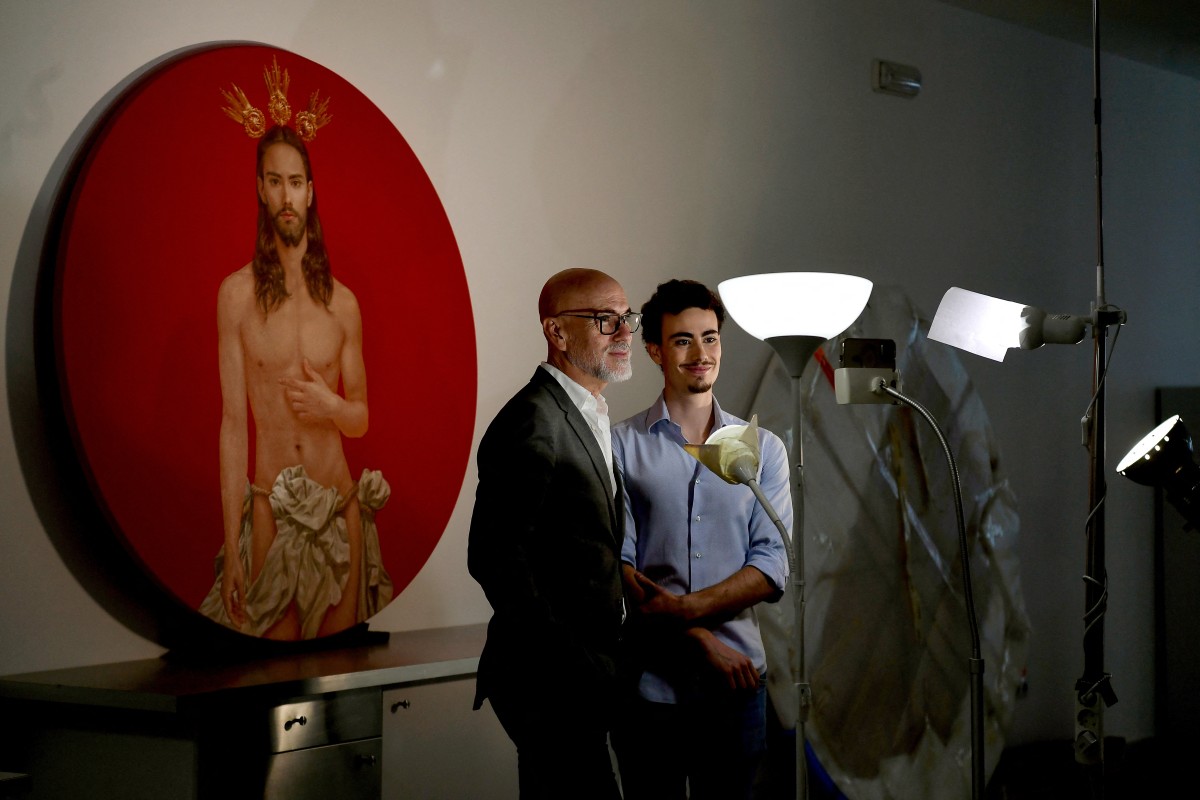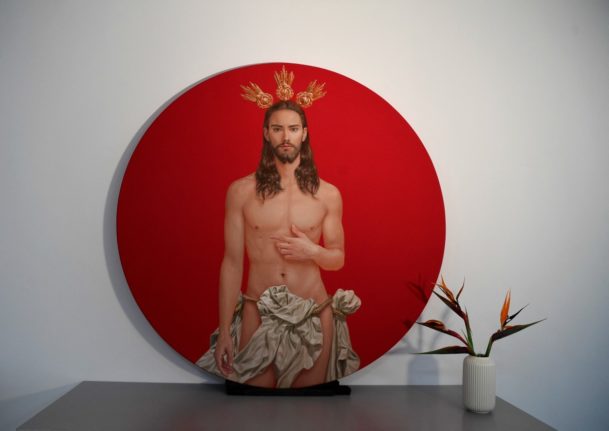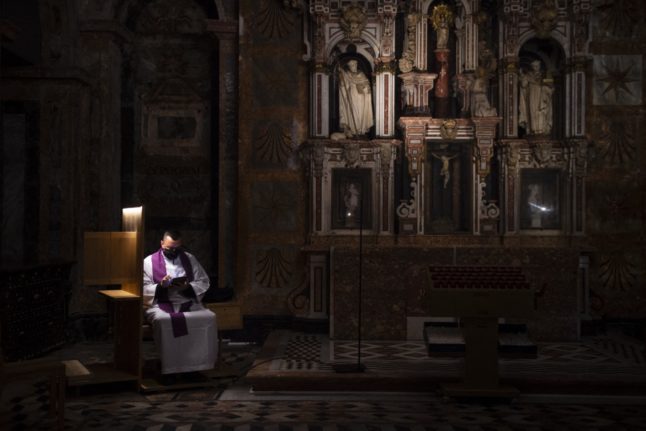Designed by Seville artist Salustiano Garcia, the poster shows Christ after his resurrection from the dead, stood semi-naked in front of a blood-red background, with the lower part of his body covered by a white cloth.
It shows “the radiant side of Holy Week” in the “purest style of this prestigious painter,” said the Council of Brotherhoods and Guilds which organises the main Easter week events in the southern city.
In a social media backlash, however, many people denounced the poster as “sexualised”.
“It’s absolutely shameful and an aberration,” wrote the ultra-conservative Catholic IPSE, which says it fosters “respect for Christian symbols” and is active in opposing abortion.
The image portrayed Christ as “effeminate” and “camp”, it said, demanding a public apology from the artist for a poster that was not in the spirit of Holy Week.
Javier Navarro of the far-right Vox party joined the chorus of disapproval, saying the poster “sought to provoke” and did not advance the aim of “encouraging the faithful to participate in Holy Week in Seville” in remarks on X, formerly Twitter.
READ ALSO: What you need to know about Semana Santa in Seville
The artist told the right-wing ABC newspaper that his portrayal of Christ, which was based on an image of his son, was “gentle, elegant and beautiful” and created with “deep respect”.

“To see sexuality in my image of Christ, you must be mad,” he said, insisting there was “nothing” in his painting that “has not already been represented in artworks dating back hundreds of years”.
Juan Espadas, leader of Spain’s ruling Socialist party in the southern Andalusia region, immediately came to the defence of the artwork, denouncing the “expressions of homophobia and hatred” that it had sparked, and saying it combined the region’s “tradition and modernity”.
READ ALSO: How Catholic are people in Spain nowadays?
Holy Week celebrations, which recall the death and resurrection of Christ, are very important in deeply Catholic Spain, notably in Seville, which is widely seen as the centre of such festivities.
Spain decriminalised homosexuality in 1978, three years after Franco’s dictatorship ended, and is one of the world’s most open countries with respect to LGBTQ rights, permitting same-sex marriage and allowing gay couples to adopt since 2005.



 Please whitelist us to continue reading.
Please whitelist us to continue reading.
Member comments